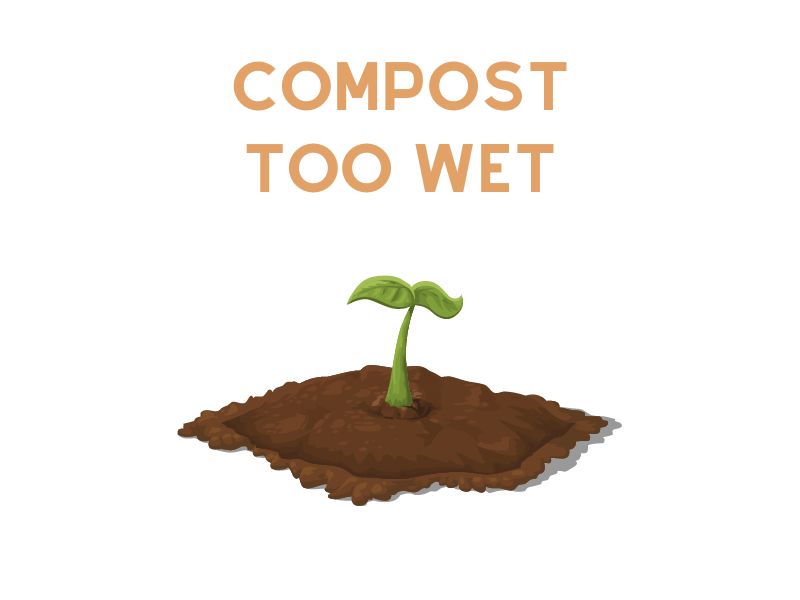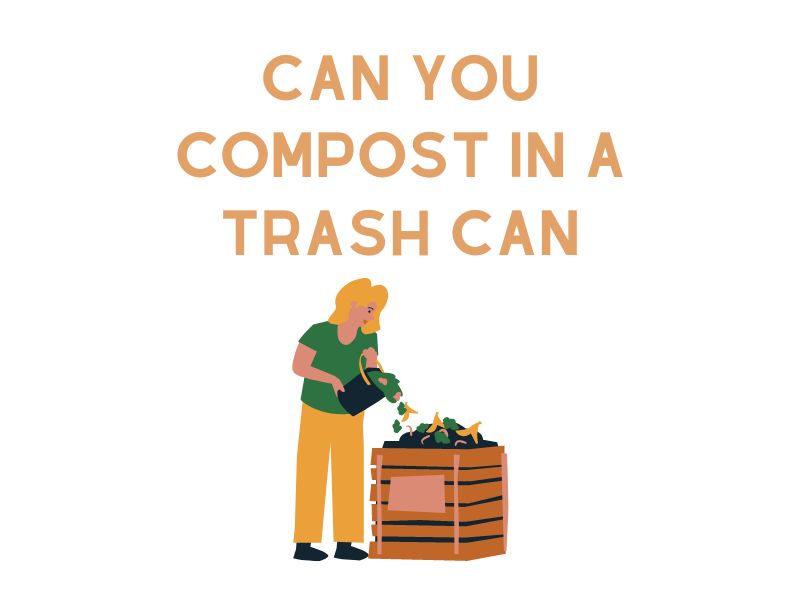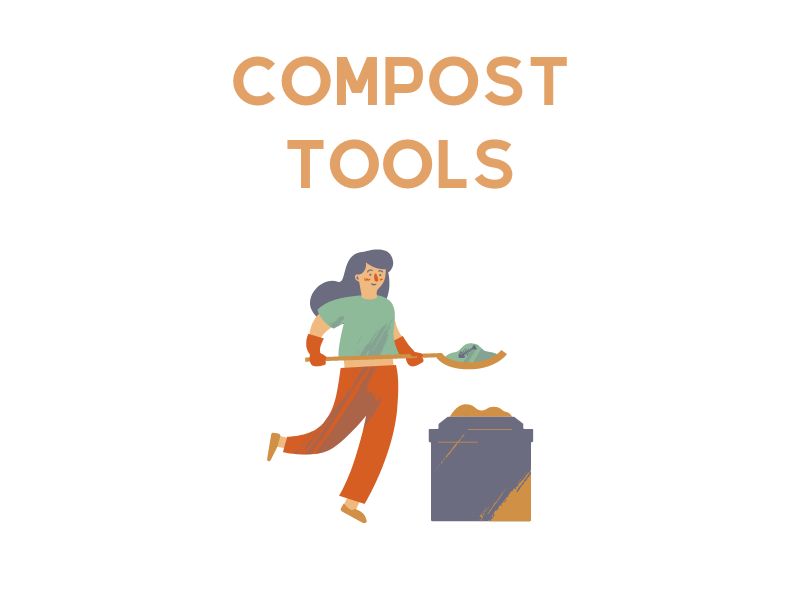Composting, a remarkable natural process that transforms organic waste materials into nutrient-rich soil, has traditionally been seen as an activity reserved for those with large gardens or expansive outdoor spaces. This notion, however, has been increasingly debunked, thanks to the rising trend of urban composting. Urban dwellers, even those confined within the narrow confines of city apartments, are finding that composting is not only a viable waste management solution but also presents a fulfilling way to contribute towards a more sustainable planet. From peels and pits to coffee grounds and eggshells, our everyday waste can be recycled into a valuable resource right in our own homes.
This comprehensive guide aims to shed light on the benefits and the methodology of urban composting. Introducing a host of strategies adapted for small spaces will help city residents navigate the common hurdles of composting. Furthermore, it aims to inspire more urbanites to embrace composting as part of their routine, thus participating in a collective effort towards sustainable waste management, no matter where they live. By unlocking the potential of waste, we can bring a little bit of nature back into our city homes, enrich our indoor plants or community gardens, and contribute to the health of our environment in a meaningful way.
Urban Composting For Beginners
For many urban dwellers, the concept of composting might seem like a far-fetched idea, primarily because of the perceived challenges associated with it such as space limitations, potential odor issues, and a complex understanding of the composting process itself. Yet, with a straightforward grasp of composting principles, city residents can easily turn these apparent obstacles into manageable tasks and actively participate in this eco-friendly practice.
Composting is, in essence, a natural decomposition process that transforms organic material such as kitchen scraps, yard waste, and certain types of paper into a rich, soil-like substance called compost. This process is carried out by a vast army of microorganisms that feed on the organic waste, breaking it down over time.
Understanding this process is vital because it helps demystify what initially appears to be a complicated undertaking. It is essentially a cycle of life, death, and decay that allows you to create a nutrient-packed supplement for soil right in your city home.
The benefits of composting are manifold. It significantly reduces the amount of waste that would otherwise end up in landfills, and it turns that waste into a valuable resource that can enrich the soil in our indoor plants, balconies, or community gardens. This makes composting a proactive way to contribute to waste reduction, resource conservation, and urban greening, transforming your waste management routine into a small yet impactful act of environmental stewardship.
Composting Methods Suitable for City Life
While composting is often envisioned as a process needing sprawling outdoor spaces and large compost heaps, a variety of innovative methods have been developed that make it perfectly adaptable to urban living. These techniques cater to the space constraints of city apartments and the fast-paced lifestyle of city dwellers, making composting a feasible option for almost anyone.
The two prominent composting methods that are particularly suitable for city life are indoor worm farming, also known as vermiculture and Bokashi composting. Both of these techniques can be accomplished indoors, without requiring a large space or producing unpleasant odors. In addition, they are capable of handling the daily organic waste of a typical city household, turning waste into a valuable resource.
Moreover, for those who are pressed for time or find managing a home composting system daunting, there are municipal composting programs. These city-run programs provide another viable option for urban residents, allowing them to contribute to composting on a larger scale without needing to maintain a personal composting system. They collect organic waste separately from regular garbage and compost it in centralized facilities, reducing the amount of waste going to the landfill and creating compost that is often used in city parks or sold to residents.
Each of these methods offers a distinct approach to composting, enabling urban dwellers to choose the one that best fits their living situation and lifestyle. Despite the challenges associated with city living, these methods prove that composting is not an exclusive privilege of rural or suburban households, but a sustainable practice that everyone can adopt.
Indoor Worm Farm
Vermiculture, or worm composting, is an incredibly effective and space-efficient method for managing organic waste in an urban environment. This system involves the use of composting worms, such as red wigglers, which consume organic waste and excrete nutrient-rich castings, often referred to as ‘worm compost’.
The process of setting up an indoor worm farm is relatively simple. It requires a worm bin – a dark, ventilated container that can be as compact as needed to fit in your designated space, like under a kitchen sink or in a closet. The bin is filled with bedding, typically shredded newspaper or coconut coir, which provides a comfortable habitat for the worms. Food scraps are then added to the bin for the worms to consume and convert into compost.
One of the advantages of a worm farm is that it doesn’t produce foul smells when managed correctly. The worms consume the decomposing material quickly, preventing the build-up of unpleasant odors. They can process fruits, vegetables, coffee grounds, tea bags, and even small amounts of bread and pasta. However, they should not be fed meat, dairy, or citrus, as these can create a harmful environment for the worms.
The result of worm composting is two-fold. The solid worm castings, often referred to as ‘black gold’, are an excellent soil conditioner, rich in nutrients and beneficial microbes. The liquid runoff, known as ‘worm tea’, is another valuable by-product that makes a fantastic liquid fertilizer for plants when diluted with water.
The compact nature of a worm farm and its low maintenance make it a great solution for urban dwellers, turning what would be waste into valuable compost without requiring a garden or large outdoor space. It’s an exciting and educational process that brings the magic of nature’s recycling system right into your home.
Bokashi method of indoor composting
The Bokashi composting method, originally from Japan, is another innovative and highly efficient indoor composting technique that is especially well-suited to urban life. The term ‘Bokashi’ translates to ‘fermented organic matter’, and it is this process of fermentation that sets Bokashi composting apart from other composting methods.
Bokashi composting requires a special type of bran that’s been inoculated with beneficial microorganisms, including yeasts, fungi, and bacteria. These microorganisms kickstart the process of anaerobic fermentation.
Starting your Bokashi compost is as simple as getting a Bokashi bin and the inoculated Bokashi bran. The bin, which is compact and sealed, is designed to create an oxygen-free environment that is essential for the anaerobic fermentation process. You simply add your kitchen scraps into the bin, sprinkle a layer of Bokashi bran on top, and continue these layers until the bin is full. Every type of kitchen waste, including cooked food, meat, and dairy, can be composted using this method, which is a significant advantage over many other composting systems.
One of the great things about Bokashi composting is that it doesn’t produce any foul odors. Instead, when opened, it gives off a smell that’s often compared to that of pickles or cider vinegar – a testament to the fermenting process at work.
After the bin is full, it’s sealed and left for about two weeks to let the fermentation process complete. During this time, the waste is broken down and turned into a pre-compost. This pre-compost can be used directly in small amounts at the bottom of potted plants or can be further composted in a traditional compost bin or pile if you have access to one.
Bokashi composting stands out for its speed, its lack of odors, its ability to compost all types of kitchen waste, and its suitability for indoor use, making it a perfect choice for city dwellers looking for an effective composting solution.
Municipal Composting Programs
In many cities across the globe, local governments have recognized the importance of composting as a key component of waste reduction and sustainability initiatives. As a result, they have established municipal composting programs that offer an efficient and convenient solution for urban residents who may find home composting challenging due to time constraints or limited space.
Municipal composting programs function by providing separate waste collection for organic materials. Residents are often given specific bins or bags in which they can discard their organic waste, including fruits, vegetables, coffee grounds, yard waste, and sometimes even items like pizza boxes and soiled paper products. This waste is then collected separately from regular trash on designated days.
Once collected, the organic waste is transported to large-scale composting facilities. These facilities are equipped to handle large volumes of waste and can manage the composting process under controlled conditions. They often use windrow composting, a method where organic waste is placed in long rows and regularly turned to facilitate decomposition.
The compost produced in these municipal programs often finds its way back into the community. Many cities offer the compost to residents for free or at a reduced price, use it in city landscaping projects, or donate it to community gardens.
Municipal composting programs not only reduce the volume of waste going to landfills but also convert that waste into a valuable resource for enriching soil within the community. Participating in these programs is a great way for city residents to contribute to composting efforts without having to maintain their own composting system at home.
Using Your Compost
After undertaking the rewarding journey of composting, you’ll be left with a rich, fertile product known as compost. Sometimes called ‘black gold’, compost is a dark, crumbly, earthy-smelling material that is densely packed with nutrients and beneficial microbes. The uses for this compost are numerous, making it a valuable resource for any urban dweller.
One of the most common uses for compost is as a soil amendment for indoor and outdoor plants. By mixing compost into your potting soil, you’re providing your plants with a nutrient-rich medium that encourages robust growth. Compost improves soil structure, helps retain moisture, and provides essential nutrients that plants need to thrive.
For those who maintain balcony gardens, rooftop gardens, or participate in community gardens, compost serves as a natural fertilizer that boosts plant health and productivity. It’s particularly beneficial for growing vegetables and herbs, enhancing their flavor and yield.
If you don’t have your plants or garden, don’t let your compost go to waste. You can donate it to friends, neighbors, or local community gardens. Many urban farming initiatives and community gardening projects are often in need of good-quality compost and would appreciate the contribution.
You can also use your compost to make compost tea, a nutrient-rich liquid that can be used to water plants. This is done by steeping a small amount of compost in water, straining it, and then using the resulting ‘tea’ to provide a nutrient boost to plants.
Regardless of how you use your compost, the important thing is that it’s being utilized to enrich the soil rather than contributing to landfill waste. By composting, you’re closing the loop on organic waste and participating in a regenerative cycle that nourishes the earth and supports the growth of new life.
Advocating for Composting in Urban Areas
While individual efforts significantly contribute to the composting movement, there’s also a need to advocate for policies and regulations that support urban composting. This could involve raising awareness about the benefits of composting, campaigning for city-wide composting programs, or lobbying for the installation of community composting sites in local parks.
Conclusion
Urban composting might seem daunting at first glance. The perceived lack of space, potential odors, and the learning curve may all appear as significant hurdles. However, with the right knowledge and tools, these challenges can easily be overcome. Whether it’s through worm farming, Bokashi composting, or participating in municipal composting programs, city residents have a myriad of methods at their disposal to responsibly dispose of their organic waste.
Turning your kitchen scraps into ‘black gold’ for plants is not only a sustainable practice that significantly reduces landfill waste but also a gratifying experience that connects us back to the natural cycle of life. It’s about taking responsibility for the waste we generate and seeing it not as useless rubbish, but as a resource that can be utilized to grow new life.
By composting, urban dwellers can play a crucial role in promoting sustainability and contributing to a healthier planet, one compost bin at a time. The journey to urban composting is one of discovery and transformation, turning waste into a resource and our cities into greener, healthier places to live. As we embrace this practice, we’re not just composting; we’re actively contributing to a more sustainable world.
Through this guide, we hope you’ve gained a comprehensive understanding of urban composting and feel inspired to start your composting journey. Remember, every small step counts and your efforts will have a significant impact on both the environment and the urban landscape. The future of composting in the city is in our hands, and together, we can make a difference.




